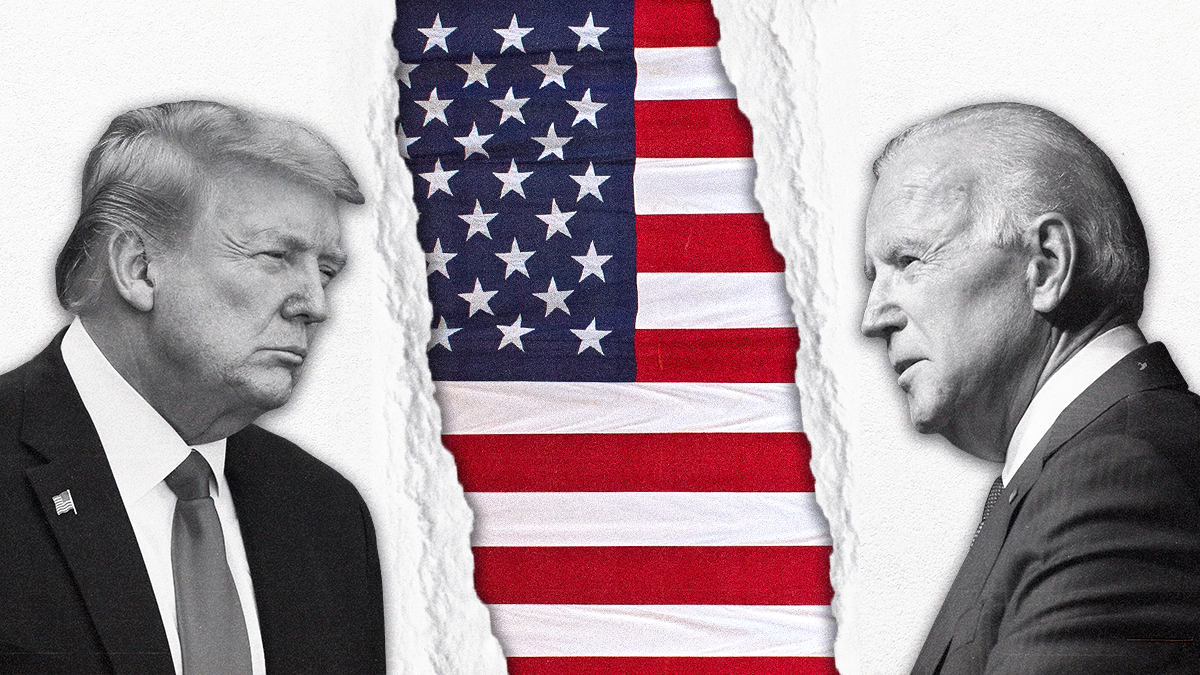US politics faces a unique moment. Both of the major political parties have leaders, but in each case, more than six in 10 Americans don’t want either to run for president in 2024. In the coming months, Democrats and Republicans will each face a reckoning, and the world will be watching closely.
Joe Biden
The president is in a tough spot. His approval numbers are circling the drain. Some 64% of Democratic voters don’t want him to seek reelection. No leader wants to admit failure by declining to run again, and Biden knows that unpopular presidents who opt out of reelection (Democrats Harry Truman in 1952 and Lyndon Johnson in 1968) or face tough challengers from within their own party (Democrat Jimmy Carter in 1980 and Republican George H.W. Bush in 1992) see their parties lose the White House.
If Biden did step aside, who might Democrats choose to replace him? Vice President Kamala Harris has a lower approval rating than Biden, and no Democrat with high political hopes wants to be first to draw daggers on a sitting president.
Donald Trump
Though he’s already announced informally that he will again run for president, many headlines featuring Trump’s name these days detail allegations that he attempted to steal the 2020 presidential election and tried to use violence against elected US officials, including his own vice president, to do it. That’s part of why 61% of Americans don’t want him to run, and half of Republicans want an alternative. The investigation of the Capitol Riot has persuaded even some Republicans that Trump has much to answer for.
Yet, Trump won’t be easier to dislodge from the position of party frontrunner than Biden. He still leads all likely Republican primary opponents by a sizable margin. Even if he gets indicted for alleged crimes related to the 2020 election, he’ll probably press ahead with a candidacy that could boost him politically and protect him legally.
And what happens if Trump runs for president and begins to lose the fight for the Republican nomination? His GOP opponents know that Trump might claim that votes are being stolen from him, and the party knows Trump can threaten at any time to run in 2024 as an independent, crippling the GOP’s chances of beating Biden or any other Democrat.
Three thoughts
There has never been a moment in modern US presidential politics when the parties faced such a significant reckoning simultaneously.
If Biden and Trump are the nominees, there’s no compelling evidence that Democrats disappointed with Biden or Republicans uncomfortable with Trump will stay home on Election Day and miss their chance to vote against the hated other party. In other words, an historically unpopular candidate can still become the next president.
The world is watching. Decision-makers across Europe, in China, inside the Kremlin, and in the Middle East need to know where US politics is headed — and understand they’d better hedge their bets on America’s direction.
This article comes to you from the Signal newsletter team of GZERO Media, a subsidiary of Eurasia Group that offers balanced, nonpartisan reporting, and analysis of foreign affairs. Subscribe to Signal today.
